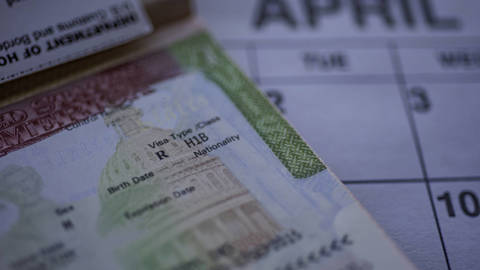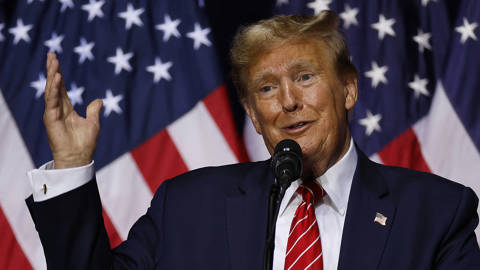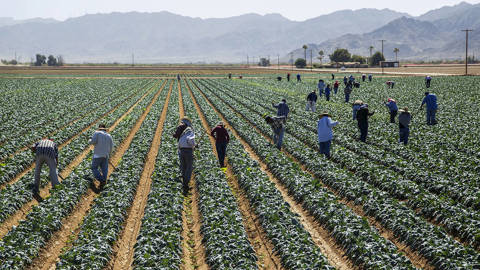OnPoint Subscriber Exclusive
Interviews feature exclusive interviews with prominent leaders and thinkers on issues of global importance.
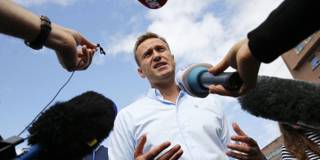
The Novichok Archipelago
Alexei Navalny, the Russian opposition leader and head of the Anti-Corruption Foundation in Moscow, has reportedly died in prison, age 47. In October 2020, two months after being poisoned by the nerve agent Novichok, he spoke with Tikhon Dzyadko, the editor-in-chief of Dozhd TV, Russia’s only remaining independent broadcast network at the time.
BERLIN/MOSCOW – Russian opposition leader Alexei Navalny, who has died in an arctic penal colony, was the head of the Anti-Corruption Foundation in Moscow. In August 2020, he was transported from Siberia to Berlin for treatment of a severe illness that doctors and the Organization for the Prohibition of Chemical Weapons later confirmed was caused by the nerve agent Novichok. In October 2020, Navalny spoke with Tikhon Dzyadko, the editor-in-chief of Dozhd TV (TV Rain), Russia’s only remaining independent broadcast network.
What the West Could Do
Tikhon Dzyadko: The European Union recently voted to sanction six Russian citizens and one entity in connection with your poisoning in August. Those affected are representatives of the presidential administration, the special services, and the institutions where it is believed that Novichok was created. Do you think these sanctions are sufficient?
Alexei Navalny: I am primarily interested in what happens in Russia; Europe’s reaction is of secondary concern here. I understand that the indignation in many countries is not entirely connected to me. They are more concerned with the use of a chemical weapon. Nobody likes chemical weapons. What I want is an investigation conducted on Russian territory – or at least the semblance of an investigation. Because what is happening now seems to be another signal that no one can count on any justice in our country.
As for sanctions or blacklists, my position has always been that if developed countries want to help Russia and its citizens and themselves, they should put a roadblock in the path of dirty money leaving Russia. You do not need those six people – those people who invented Novichok or used it as a weapon – to block this flow of money that is stolen from our citizens.
The killers and those who gave them the order must be criminally prosecuted. But what is really needed is to kick out of Europe all the oligarchs – the Usmanovs, the Abramovichs, the Shuvalovs, the Peskovs, and all these propagandists who enrich themselves and send money to Europe while Russians are kept in poverty and degradation. These are the people who must be fought. I do not know what measures European countries will take in response to my poisoning, but I would like them to focus on punishing not just the flunkies who execute orders, but the high-profile villains who hide their stolen money in Berlin, London, and Paris.
TD: But surely some European officials have consulted you about who should be punished. Have you helped compile any lists of persons who will be sanctioned?
AN: No, I do not need to make another list. You can consult any of our Anti-Corruption Foundation investigations, most of which are concerned with just that: how some people, claiming to be patriots, plunder enormous sums and buy themselves luxury real estate in Manhattan or Mayfair. My list is my YouTube blog. Anyone can tune in there, take the names, and add them to any anti-corruption list.
In fact, I am not communicating with any officials here in Berlin or elsewhere in Europe. The only people I talk to are doctors. I don’t think that Europe and its officials need my help. Again, they are imposing sanctions not because of me, but because the use of chemical weapons is a violation of international laws and conventions. That is why the formal investigation and statements about the use of Novichok in my case were made not by European countries, but by the Organization for the Prohibition of Chemical Weapons, which Russia helped create.
Whether it is Navalny or whoever, the punishment for using such a weapon should be the same. The EU sanctions are not related to my person, but to the fact that there is an active program in Russia for developing chemical weapons and using them to eliminate political opponents.
The Cover-up
TD: When you were in the hospital, there were media reports that Russian consular officers requested access to you. Did you eventually meet with them?
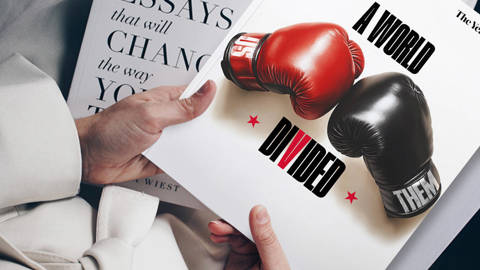
Secure your copy of PS Quarterly: The Year Ahead 2025
Our annual flagship magazine, PS Quarterly: The Year Ahead 2025, has arrived. To gain digital access to all of the magazine’s content, and receive your print copy, subscribe to PS Digital Plus now.
AN: This was a funny situation. As far as I understand it, they requested access to me when, probably, I was still in a coma, or just started to come out of a coma. It was such a bizarre discussion. They may as well have been trying to talk to a stone in the forest! “We demand access to Navalny!” the consulate said. The international provisions on consular access require that consular assistance be provided to people who need it. I do not need it; I need just one thing: for Russia to have a proper investigation into an attempt to murder me.
If there is no such criminal case, because the official position at all levels is that there was no attempted murder, well, I would like to have the clothes I was wearing when I was poisoned. There is every reason to assume that the Novichok was applied to my clothes, which remained behind in the hospital in Omsk. I would like to be given my own medical records, too. And I would very much like to see the video recordings seized by interior ministry officers from the hotel in Tomsk, where the poisoning likely happened. We don’t know where these recordings are. If there is no criminal case, where are the videos? I want to see who entered my hotel room.
What the Russian foreign ministry is currently doing is just a distraction. For some reason, they are demanding evidence from Germany. Why? Russia has my clothes, which should be examined. Russia has my blood, which should be tested. The hospital in Omsk is where my medical records and everything needed for a proper investigation can be found. But, for some reason, we do not see it. Instead, we see some kind of skirmish between Russia and Germany.
TD: Do you think there will be some form of investigation?
AN: I assumed they would at least pretend to have an investigation. But, so far, there is not even a sham investigation. That, for me, is further confirmation that Russian President Vladimir Putin issued the order. Otherwise, we would have seen something similar to the investigation into the murder of Boris Nemtsov.
In that case, the organizer was not detained, and the person who ordered it was not named. Only those who pulled the trigger were arrested. But at least there was an investigation. In my case, there is a complete disregard. According to the French press, Putin, in conversations with leaders of other countries, denied the use of chemical weapons, then claimed that I poisoned myself.
Putin’s Fingerprints
TD: Right, Le Monde published an article citing Putin’s conversation with French President Emmanuel Macron. There, Putin said something along the lines of, “Navalny is a troublemaker on the Internet, Novichok can be traced to Latvia, and it is possible that Navalny himself swallowed it.” What did you think when you read this?
AN: I thought I was right when I assumed it was Putin’s order. The way he denies it all, he makes himself a laughingstock. I have no doubt that the French side leaked this to the press, because they were outraged by such blatant lies. Think about what Putin said: “Navalny often pretends…” This level of lying is not being done for someone else. He is lying for himself, trying to justify himself.
In other words, this was not some “rogue” incident. There is not some crazy general who ordered a group of mysterious killers to eliminate someone. It was Putin’s personal project, and it failed. He is trying to shield himself now, including with this completely monstrous lie. The man was caught with a smoking gun aimed at the back of my head, and, after missing, he says: “It’s not me. It was a suicide attempt.”
TD: You have one of the best investigative structures in Russia. If there is no official investigation in the Russian Federation, will the Anti-Corruption Foundation carry out some kind of inquiry of its own?
AN: I would like to know for sure who did it. We certainly have the best investigative group in Russia, and I can say without false modesty that it is probably one of the best in the world. But, to be honest, our possibilities are limited now that the security videos from the hotel are gone. We can’t take them back from the FSB (Federal Security Service) by storm. Everything has been confiscated and sent there.
The case should have been very easy to solve. The video footage would make everything very clear. But we cannot obtain that evidence. The overwhelming majority of our investigations are conducted using publicly available information. We work with open sources, and simply analyze them very well. In my case, one would need to see the surveillance data, because I was being followed. From what I understand, there was a strangely detailed account of my movements before I left Tomsk, apparently prepared by a section of the FSB that was responsible for monitoring me. I was being watched constantly and consistently. The entire hotel was covered with video cameras. This is the most important piece of evidence, but all of it has been seized.
We are of course trying to figure out what happened, but we are not naive. There will be no sensational discovery. We won’t be able to publish photographs of the people who committed this crime any time soon. That’s how power operates. We’re talking about representatives of the special services. That whole machine is now engaged in hiding and destroying the evidence. That is why there are no videos, no clothes, nothing.
Back to Work
TD: So many times in recent years you have been asked whether you are afraid of being killed. They have now really tried to kill you. What do you feel? Will you take revenge?
AN: Well, I seem to be alive, and, oddly enough, I do not feel bitterness. Staring death in the face is a rewarding experience. Of course I have strong feelings about the people who did it. But I don’t catch myself thinking that I’d like to strangle them with my own hands. I crave justice for myself and for everyone around me, but that is because it is impossible to consider a country normal if such a brazen attempt at murder is not even investigated.
Let’s be honest, I’m kind of a famous guy. People want to interview me. But what would have happened if I were a regular activist opposing a local oligarch or governor in some Russian region? What would have happened if I were a human-rights activist somewhere in the Caucasus? When a high-profile crime with a more or less famous victim like me has no consequences, what can those people expect. If even I cannot get justice or at least an investigation, no Russian citizen can count on anything. This is why I demand justice! As for taking revenge myself, I have no such desire.
TD: Will you now change your strategy and that of the Anti-Corruption Foundation? Obviously, the stakes have increased. Until August 20, the day you were poisoned, you were conducting ongoing investigations, pursuing a strategy of “smart voting” (encouraging people always to vote for whichever candidate opposes the ruling party, United Russia), and holding rallies. Now that the situation has changed, how will you change your activities?
AN: The stakes have risen in the sense that we are seeing the regime decay. We understood before that we were dealing with scoundrels who are obsessed with power and money, and who apparently will stop at nothing. But we now understand more than ever that the toolbox includes political assassinations and intimidation through extraordinarily dangerous methods. Chemical weapons are chemical weapons, after all. The only remaining question is just how widely they are willing to apply such methods.
The stakes are indeed higher in that sense. But, as before, the basic strategy remains the same. We must appeal to the people. We must demand the right to participate freely in elections as candidates. We will continue to organize rallies. What happened is very relevant, of course, not least for me personally. But, in general, I do not think that our approach or activities will change dramatically.
That said, I must recognize that I have missed over a month in Russia. I am abroad, and I now constantly catch myself thinking about how one in such a position loses touch with what is happening. I therefore do not want to devise a strategy for opposing the Russian regime while I am in Berlin. I don’t want to engage in émigré activity. My current priorities are recovery, rehabilitation, and return to Russia.
Then I will get back to work with my colleagues from the Foundation across our regional offices. We will adapt to developing realities and the new political situation if, say, early presidential elections are announced. We will adjust the strategy as needed. We have always tried to make our flexibility our strength. The Kremlin is changing, and we are changing. How exactly we will change is difficult to say, because I still need to return.
TD: Based on what you see in Russia, would you change your approach to your personal security? Are you considering the possibility that your family may stay abroad?
AN: This is a question for family members, including my wife. But no, the issue is not being considered. Julia supports my work, and we will certainly return.
It is impossible to compete with the state in terms of security. I am a realist. I understand that even if I surround myself with 30 guards, these guards could be detained tomorrow for participating in an unauthorized march when they accompany me. After that, the authorities might detain me and pour seven bottles of Novichok over my head.
I try to behave as reasonably and responsibly as possible, but I realize that it is simply impossible to compete with the entire state machine. My attitude has probably become more fatalistic than before. I just do what I think is the right thing to do. I ask people for support. I try to behave as carefully as possible, but this should not interfere with my main activity.
TD: Have you already imagined your return? Expectations run the gamut. Some expect you to hold a big rally. Others wonder if you will be allowed back into Russia.
AN: How can they not let me into Russia? I am a citizen of Russia, I have a Russian passport. I cannot be denied entry. To be sure, I already see the authorities’ efforts to prevent me from returning, mainly by trying to intimidate me with some kind of criminal case. But I have already passed the stage of my life when threats of criminal cases bothered me. I was not afraid of this before, and I am even less afraid now.
But on the question of how I imagine my return, first of all, I don’t think about it. I am definitely not planning any scenarios. Should I, like Aleksander Solzhenitsyn, come to Vladivostok in the Far East, and then travel through Russia by train and fraternize with adoring fans at each stop? I would like to avoid any unnecessary pathos. There may have been some dramatic events in my life, but, ultimately, I’m just a Russian politician who is now temporarily in Berlin for medical treatment. I will recover, everything will be fine with me, and I will return to Russia in economy class. I will take a taxi, I will go home, and in the morning, I will go to work – that’s all.
War on the People
TD: A lot has happened during your absence. One of the worst events so far is the self-immolation of the journalist Irina Slavina in Nizhny Novgorod. Have you read about that?
AN: Of course. It is an absolutely monstrous story. I cannot say for sure that our headquarters interacted with Slavina. She came to some press conferences when I was in Nizhny Novgorod, and there are photographs of us. When I heard, I immediately posted online about this story, about her being driven to suicide. This was the result of a campaign of personal destruction waged by the authorities. They targeted a journalist who did nothing wrong. She was fined endlessly (for which we helped her collect some money); she was deprived of her livelihood; she was punished for pursuing her profession.
You need to understand the degree of despair that comes from having your only means of earning an income taken away. In addition to the crushing fines, Slavina was raising two children and being targeted by people who have never done anything good in their lives. They raided her home and confiscated the phones.
What does one tell one’s children in this situation? You cannot buy them a new phone, because you have no money and you owe endless fines. The authorities clearly did everything they could to drive her to despair. It is not just a tragedy, but a crime. Specific people should be held accountable. That’s how I feel about it.
This interview is presented in cooperation with Dozhd TV.
